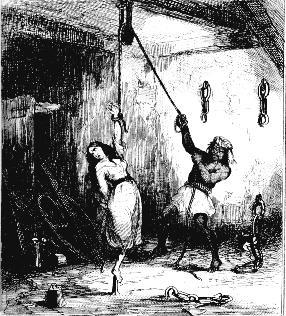Social dignity can be lost by abandoning one's essential humanity, but human dignity (kavod habriot) cannot be lost, since it is an endowment, not an achievement. Human beings maintain free will and the basic human faculty for the potential actualization of moral conscience and spiritual consciousness. Whether one is a newborn or elderly, healthy or sick, man or woman, Jew or gentile, white or of color, making wise or poor moral choices, religious or secular, grasping truth or ignorant, that core tzelem Elokim, the human dignity endowed from G-d, remains (Genesis 1:26-27). As free moral agents, human beings have an inviolable essence. Social dignity, on the other hand, is an achievement and not a divine endowment; it can be actualized and increased or lost based upon the choices one makes. Our national laws and communal policies should be determined by those two facts: Social dignity can be lost, and human dignity cannot.
The rabbis taught that, at times, human dignity overrides rabbinic obligations to actively perform mitzvot: "So great is human dignity that it even overrides a negative commandment of the Torah" (Brachot 19b). Some even argue that Torah commandments are overridden at a moment when they conflict with human dignity (Yerushalmi: Kilayim 9:1, Nazir 7:1, Brachot 3:1). Rabbi Eliezer, upon his deathbed, taught his students that the path to the afterlife is earned by honoring others. Furthermore, it is considered the gravest offense to violate the dignity of G-d or of a human:
One who gains honor through the degradation of his fellow human has no share in the world to come. All the more so if one gains honor at the expense of the honor of the Eternal One. (Yerushalmi, Chagigah 2:1; Midrash Genesis Rabbah 1:5)
Shaming another in public to cause them embarrassment (hamalbin pnei heveiro b'rabbim) is considered like murder (Bava Metzia 58b). On the flip side, one can actualize one's religious dignity by emulating the ways of G-d (Deuteronomy 13:5; Sotah 14a).
Dignity and honor are due to every human being. It is clear, however, that the virtuous deserve increased honor. Maimonides taught that one can significantly elevate oneself:
[E]very single person of all the inhabitants of the world whose spirit and wisdom have inspired him to stand before G-d, to serve Him, to revere Him, to know G-d and to walk uprightly the way G-d made him; and he removed from his neck the yoke of the numerous calculations that people seek; this individual becomes sanctified, a holy of holies, and G-d shall be his lot and portion forever and ever.... (Laws of the Sabbatical Year 13:13)
Every human being has the potential to reach this level of the "holy of holies," according to the Rambam. Nevertheless, just as religious dignity can be actualized, it can also be lost. The sages taught, "When there is a denigration of G-d's Name, no respect is paid [even] to one's teacher" (Brachot 19b-20a).
There is a famous debate between Rabbi Akiva and Ben Azzai about the most foundational principle in the Torah (Yerushalmi, Nedarim 9:4). Rabbi Akiva taught that it is our obligation to care for others ("You shall love your fellow as yourself" [Leviticus 19:18]). Ben Azzai, however, teaches that it is human dignity (Genesis 5:1).
A violent pursuer (rodef) loses his or her social dignity and therefore may be attacked, even killed, for their pursuit of the innocent. There are also long-term moral consequences for abandoning one's social dignity. Once controlled and detained, however, he or she may not be tortured, because this violates his or her inviolable human dignity, which cannot be lost. The Midrash elaborates on the point that when one harms another person, one has harmed the Creator, since she or he is created in the image of G-d (Genesis Rabbah 24:7).
Even where one has caused harm, one's human dignity must still be honored. Consider the ruling of the Maharam (Teshuvot Maharam 400) that even though there is an obligation for a debtor to pay debts, the creditor may not take his only garment (even though it is owed to him). The debtor has wronged the creditor; nonetheless, his dignity is honored. The Shulchan Aruch says here that the creditor should even try to avoid being seen by the debtor so as not to embarrass him further (Choshen Mishpat 97:2).
The underlying essence of torture is about humiliation and breaking the spirit of the captured. This is a clear violation of Torah law and values. There have been intelligence officers who have gone on record stating that intelligence gained from torture is useless. So why, then, would Torah values be broken and the human dignity of another be shattered for no purpose other than to inflict harm and humiliate another? War and murder are brutal, tragic realities of life, but all is not permitted in war. The Torah continuously places restrictions in times of distress (for example, restrictions on the treatment of female captives [Deuteronomy 21:10-14], and even on the destruction of the enemy's trees [Deuteronomy 20:19-20]) to ensure that ethics are maintained even in war. The respect for human dignity is given even to those who have done wrong. Consider this Talmudic teaching:
G-d is mindful of human dignity. For [stealing] an ox, which can normally walk on its own feet, the payment is fivefold but for stealing a sheep which the thief must carry on his own shoulders the payment is fourfold. (Bava Kama 79b)
The rabbis made clear that a suspected criminal cannot be degraded even though he is suspected to have done wrong (Menachot 99b, Bava Metzia 58b). Maimonides makes clear that authorities must honor the human dignity of a prisoner who has been detained for crimes (Hilchot Sanhedrin 24:10).
In the Bible, even though Yehudah was responsible for the crime, Tamar was willing to be killed rather than shame him publicly (Genesis 38:6-26). The rabbis explain about this case:
It is better that a person should cast himself into a fiery furnace than that he should shame his fellow in public. (Bava Metzia 59a)
Even though he was wrong, he did not lose his human dignity, and Tamar was virtuously still willing to protect it.
In addition to religious law, there has been an attempt to construct an international law of human rights (Universal Declaration of Human Rights, 10 Dec. 1948, Articles 1 and 12):
All human beings are born free and equal in dignity and rights. ... No one shall be subjected to arbitrary interference with his privacy, family, home or correspondence, nor to attacks upon his honour and reputation.
Israel has been a leader in this discourse as well, with its "Basic Law: Human Dignity and Liberty" (17 March 1992):
The purpose of this Basic Law is to protect human dignity and liberty, in order to establish in a Basic Law the values of the State of Israel as a Jewish and democratic state. (Article 1A)
While 155 nations eventually signed a 1984 UN convention that banned torture, most have not lived up to this ideal. A 2014 report by Amnesty International investigated 141 nations for evidence of torture or ill-treatment. While some nations had isolated cases that were not part of a policy, the report found that 79 nations were guilty of torture. Regionally, there is much work to do:
- In Africa, at least 30 nations have not criminalized torture. In Nigeria, a major player in sub-Saharan Africa, torture was described as routine.
Nor did the United States escape guilt in the report:
The US government is also failing to ensure accountability for torture and enforced disappearances committed in the context of counter-terrorism operations. No one responsible for the use of interrogation techniques such as "water-boarding," prolonged sleep deprivation, and stress positions in Central Intelligence Agency (CIA)-run secret detention centers around the world has been brought to justice. The US Select Committee on Intelligence has conducted a review of the now-terminated CIA program, but its 6,000-plus page report remains classified.
Indeed, the Senate Intelligence Committee report on torture techniques used during the era of President George W. Bush has been delayed by years, and the CIA (and in some cases the White House) has done its best to delay the process. It has forced the deletion of even pseudonyms for agents and even foreign nations that cooperated with the United States in torturing people. Recently it was revealed that the CIA hacked into a computer database that was assigned exclusively for Senate Intelligence Committee members. While, fortunately, the majority opinion will be that torture should not be employed, as its cruelty is matched by its lack of value for information, it will not say anything to try to stop the torture. It is to be hoped that America's years of torture were an anomaly, and that the United States, Israel and the other nations of the world will move toward a world without torture, an ideal sanctioned by Jewish sages for millennia.
I know that if one of my loved ones were captured in some capacity, the possibility of them being tortured would torment me. I would view the captors only as barbaric. Let's remember that someone captured by our own government (for any reason) also has loved ones praying for them. If we wish to set a global standard embracing the eternal truth that the "image of G-d" is in every person, then we must start with our own polices at home. We should only create policies that we also believe other nations should emulate.
Rabbi Dr. Shmuly Yanklowitz is Executive Director of the Valley Beit Midrash, the founder and President of Uri L'Tzedek, the founder and CEO of the Shamayim V'Aretz Institute and the author of five books on Jewish ethics. Newsweek named Rav Shmuly "one of the top 50 rabbis in America."


